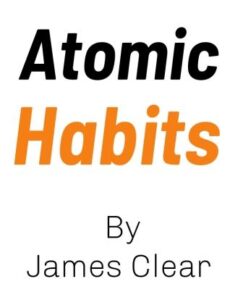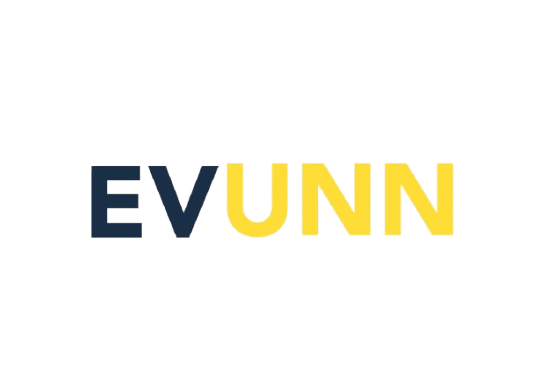Summary of Essentialism the Disciplined Pursuit of Less
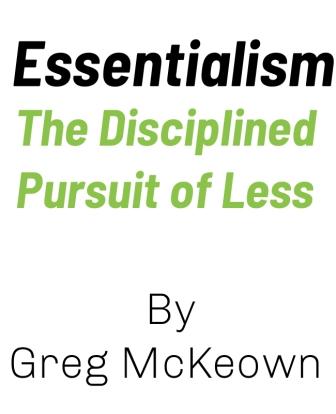
Instead of passively letting others dictate our path, we must actively choose our own direction by making deliberate decisions.
Evunn Tweet
Why We Recommend this Book
The main reason we recommend Essentialism is that it’s a classic and goes deeper than other books that offer quick productivity hacks instead.
This book has influenced top entrepreneurs, leaders, and creatives because its principles stand the test of time.
Instead of teaching you how to do more, it teaches you how to do less but better—a mindset shift that can transform both your business and your life.
Essentialism: The Disciplined Pursuit of Less
Summary of Essentialism the Disciplined Pursuit of Less
Life gets busy, right? You’ve probably heard about Essentialism and know it could help you cut through the noise and focus on what truly matters.
But, work, family, and all those business challenges keep piling up. Right? We get it. That’s why we’ve made it super easy for you.
This summary of Essentialism the Disciplined Pursuit of Less is designed to give you the actionable insights you need to solve problems, prioritize like a pro, and grow your business—all without having to carve out hours from your busy schedule.
Ready to discover how less can actually mean more? Dive into the summary, and if it resonates, grab Essentialism full book for the complete blueprint.
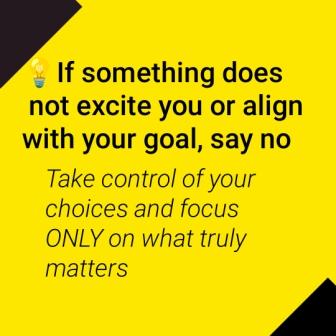
Introduction
Imagine waking up every day feeling in control, focused, and free from the overwhelming demands of modern life.
What if you could accomplish more by doing less—and do it better? This is the promise of Essentialism, a book that’s not just about time management but about life management.
Greg McKeown teaches you how to cut through the clutter, identify what truly matters, and focus your energy on those few things that will make the biggest impact.
He calls it the disciplined pursuit of less—less stress, less overwhelm, and less noise—so you can make room for more meaning, joy, and success.
Through relatable stories, powerful insights, and practical strategies, you’ll learn:
- How to say “no” gracefully without guilt.
- Why focusing on “less but better” leads to extraordinary results.
- The secret to creating boundaries that protect your time and energy.
This book teaches you a life philosophy that empowers you to stop reacting to the chaos around you and start designing a life that aligns with your purpose.
Whether you’re a busy professional, an entrepreneur, or someone simply tired of feeling stretched too thin, Essentialism will transform the way you think, work, and live.
So, if you’ve ever felt like there aren’t enough hours in the day or wondered how to prioritize what really matters, this book is your answer.
Keep reading the summary to uncover its powerful ideas, and when you’re ready for a deeper transformation, grab your own copy of Essentialism. You can also listen to Essentialism Audiobook free on Audible.
Reclaim your life.
Click on the Tabs Below to Read Essentialism Summary
Essentialism: The Disciplined Pursuit of Less teaches you to focus on what truly matters by eliminating distractions, making deliberate choices, and doing less but better to achieve meaningful results.
Who Should Read Essentialism?
Busy Professionals:
If you’re constantly overwhelmed by competing demands and endless to-do lists, this book helps you cut through the noise, focus on what truly matters, and achieve better results with less effort.
Entrepreneurs and Business Leaders:
For those building or running a business, Essentialism provides tools to prioritize effectively, avoid burnout, and lead with clarity.
Students and Creatives:
If you’re juggling multiple projects or struggling to stay focused, this book offers strategies to channel your energy into meaningful work without distractions.
Anyone Feeling Overwhelmed:
If life feels chaotic or you’re stretched too thin, Essentialism shows you how to take control, create boundaries, and find peace in focusing on less.
Why You Should Read It
Reclaim Your Time: Learn how to stop saying yes to everything and protect your time for what truly matters.
Make Better Decisions: Gain clarity on your priorities and make deliberate choices that align with your goals.
Boost Your Productivity: Achieve more by doing less—but better.
Reduce Stress and Burnout: Simplify your life and eliminate the unnecessary to focus on meaningful results.
Live More Intentionally: Build a life centred around your values, not other people’s expectations.
Whether you want to succeed professionally, simplify your life, or find more meaning in your daily routine, Essentialism is the guide you need.
Chapter 1: The Essentialist
Greg McKeown introduces the concept of Essentialism by contrasting it with the common “non-essentialist” mindset.
A non-essentialist tries to do everything, believing that every opportunity is worth pursuing. This often leads to burnout, stress, and mediocre results.
On the other hand, an Essentialist focuses only on what truly matters, saying “no” to most things so they can excel at a few.
McKeown emphasizes that Essentialism is not about doing less for its own sake—it’s about doing less but doing it better.
Example: Think of Steve Jobs, who famously cut Apple’s product lines to focus on just a few. This allowed Apple to perfect iconic products like the iPhone and MacBook.
Chapter 2: Choose—The Invincible Power of Choice
In this chapter, McKeown highlights the power of choice. While many people feel overwhelmed by demands, the truth is, we always have a choice about where to invest our time and energy.
Essentialists consciously choose their priorities instead of letting others dictate them.
Key takeaway: If you don’t prioritize your life, someone else will.
Example: A manager constantly attends meetings he doesn’t need to be in, leaving no time for strategic work. By choosing to attend only the essential meetings, he regains control over his time and contributes more effectively.
Chapter 3: Discern—The Un-importance of Practically Everything
Not everything is equally important.
McKeown introduces the 90% Rule: Evaluate opportunities and activities on a scale of 1-100. If something doesn’t score 90 or above, eliminate it.
Example: A professional is offered multiple freelance projects. Instead of accepting all, she evaluates each based on how much it aligns with her long-term goals. Only the top-scoring projects make the cut.
Chapter 4: Trade-Offs—Which Problem Do You Want?
Trade-offs are inevitable. Instead of avoiding them, Essentialists embrace them, realizing they must sacrifice some things to focus on what truly matters.
McKeown argues that by not making deliberate trade-offs, you end up with mediocre results everywhere.
Example: You can spend Saturday morning either catching up on work or attending your child’s soccer game. The Essentialist considers what aligns more with their values and chooses intentionally, even if it means saying no to work.
Chapter 5: Explore—The Perks of Being Unavailable
To figure out what is truly essential, you need time and space to think.
McKeown recommends stepping away from the constant noise of life to deeply reflect and evaluate options. This includes creating boundaries around your time.
Example: Bill Gates famously takes “Think Weeks” twice a year, isolating himself to read, think, and brainstorm new ideas.
Chapter 6: Eliminate—Cutting Out the Trivial, Delegate it
Eliminating non-essentials is the heart of Essentialism. McKeown emphasizes learning to say “no” gracefully and firmly. By eliminating trivial commitments, you free up energy for what truly matters.
Example: A startup founder used to spend hours replying to emails. By delegating email management to an assistant, he gained more time to focus on product innovation.
Chapter 7: Dare—Have The Courage to Say No
Many people struggle with saying no because they fear disappointing others.
McKeown encourages readers to prioritize their needs and learn polite but firm ways to decline requests. Saying no is key to protecting your time and energy.
Key phrase: “Let me get back to you.” This buys you time to evaluate whether the request aligns with your priorities.
Chapter 8: Focus—What’s Important Now?
Essentialists live in the moment, focusing fully on the task at hand. Instead of multitasking, they channel their energy into one essential activity at a time.
Example: A teacher stops checking emails during lesson planning and notices her lessons become much more engaging and impactful.
Chapter 9: Be—The Essentialist Life
McKeown closes by discussing how Essentialism is a lifelong journey. It’s not about achieving perfection but about making small, consistent choices to focus on what’s truly important.
Living as an Essentialist requires discipline but leads to greater clarity, peace, and success.
Key message: Build a life centred on your values and priorities, and you’ll achieve more with less stress.
1. Identify Your Priorities:
How to do it:
Write down your top 3 personal and professional goals. Ask yourself: If I could only achieve one, which would it be? Repeat until you identify the single most important goal.
Categorise tasks into urgent, important and to be delegated with the Eisenhower Matrix Decision Matrix Notepads .
Use the One Thing Planner to focus on the single most important task each day.
Why: Clarity about your priorities helps you focus your time and energy effectively.
2. Practice the 90% Rule
How to do it:
Before committing to anything (a meeting, task, or project), rate it on a scale of 1-100. If it’s not a 90 or above, say no.
Why: This helps you filter out low-value activities and focus on what truly aligns with your goals.
3. Schedule Time to Think
How to do it:
Use the time blocking planner or Google calender and block 30 minutes to an hour on your calendar each week for uninterrupted thinking. Use this time to reflect on what’s essential and what isn’t.
Why: Stepping away from the chaos of daily life gives you the mental clarity to make better decisions.
4. Eliminate Non-Essentials
How to do it:
- List all your current commitments.
- Categorize them as essential or non-essential.
- Politely decline or delegate the non-essential tasks.
Why: Eliminating the unnecessary frees up time for what truly matters.
5. Learn to Say No
How to do it:
Practice polite responses like:
“Thank you for thinking of me, but I can’t commit right now.”
“I’d love to help, but I’m focusing on other priorities.”
Why: Saying no protects your time and energy for what’s truly important.
6. Create Boundaries
How to do it:
Set clear limits on your time. For example:
No work emails after 7 PM.
Only attend meetings with a clear agenda.
Why: Boundaries ensure you don’t get overwhelmed by other people’s priorities.
7. Focus on One Task at a Time
How to do it:
Use a technique like the Pomodoro Timer Method (work for 25 minutes, then take a 5-minute break) to focus deeply on one task.
Why: Multitasking reduces productivity and the quality of your work.
8. Build Rest into Your Routine
How to do it:
Schedule breaks during your day and ensure you’re getting 7-8 hours of sleep each night.
Why: Rest improves decision-making, creativity, and overall performance.
9. Conduct a Weekly Review
How to do it:
Use the self mastery Journal for reflections. At the end of each week, ask yourself:
What went well?
What didn’t matter as much as I thought?
What should I focus on next week?
Why: Reflecting regularly helps you refine your focus and adjust priorities.
10. Design Your Environment for Success
How to do it:
Remove distractions. For example:
Keep your phone out of reach while working.
Use noise cancellation headphone to block out distractions from your environment.
De-clutter your workspace with desk organizer to reduce mental clutter.
Why: A distraction-free environment supports better focus and decision-making.
By starting small and being consistent, these steps will help you adopt the Essentialist mindset and achieve more with less effort.
Here are books similar to Essentialism:
The Power of Concentration summary by Theron Q. Dumont
Think and Grow Rich summary by Napoleon Hill
Atomic Habits summary by James Clear
Rich Dad Poor Dad summary by Robert Kiyosaki
The Empire of Business summary by Andrew Carnegie
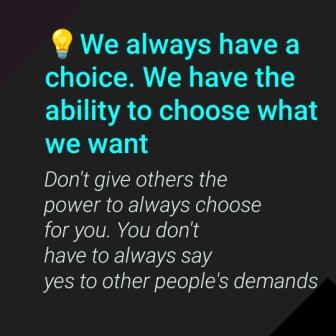
Greg McKeown is a renowned leadership and business strategist, speaker, and bestselling author.
He is a graduate of Brigham Young University and earned an MBA from Stanford University.
McKeown has worked with top-tier companies like Apple, Google, Facebook, and Pixar, helping leaders achieve clarity and focus in their work and personal lives.
As a keynote speaker, he has appeared at influential platforms like SXSW, TEDx, and Fortune 100 companies.
His writing has been featured in Harvard Business Review, Fast Company, and Fortune.
Essentialism has earned him a reputation as a thought leader in simplifying and prioritizing life for meaningful success.
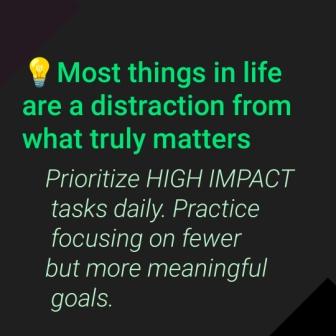
Course Curriculum
Test your Knowledge
Choose any of the options
-
Essentialism Quiz
Evunn Concept
Essentialism by Greg McKeown and The One Thing by Gary Keller share a common message: less is more, and focus creates success.
Essentialism teaches you to identify and eliminate non-essential tasks, so you can focus only on what brings the highest value.
The One Thing takes this a step further by asking: “What’s the ONE most important thing I can do right now?”—guiding you to direct all your energy toward that single, high-impact priority.
Your Next Read
